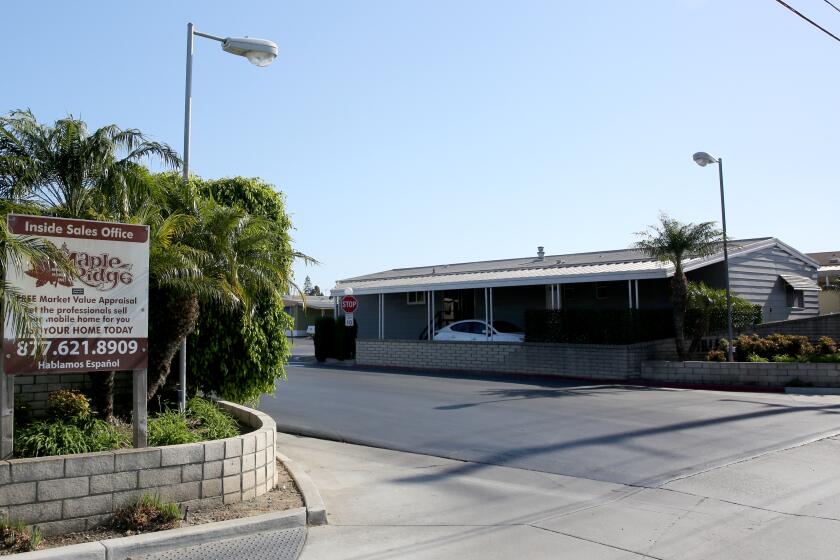City officials, candidates to amend disclosures
- Share via
Mathis Winkler
NEWPORT BEACH -- Half a dozen Newport Beach city officials and council
candidates on Friday said they plan to amend their financial disclosure
statements after realizing that they may have failed to include all the
required information on their stock holdings.
“Yes, I do own stock,” said Planning Commissioner Steven Kiser, who
had not listed any stocks on his disclosure form. “But I’m going to find
out real soon -- over this weekend -- if I should disclose any of that.
You almost consider whether you should put everything down.”
Others have already done that.
City Councilman Tod Ridgeway, Planning Commissioner Michael Kranzley
and council candidate Bob Wynn said they had decided to list all their
stock holdings regardless of whether the company did business in Newport
Beach, therefore creating potential conflicts of interest.
“I thought to be on the safe side, I should list every stock I own,”
said Wynn. “So I just listed everything.”
City Council members and candidates, planning commissioners, the city
attorney and the city manager are required to file so-called “statements
of economic interests” annually. Those statements are mailed to the
state. City Hall also keeps similar records for the city clerk,
department heads and all members of city boards and commissions, said
City Clerk LaVonne Harkless.
In addition to loans, gifts, travel payments and property holdings,
officials must list their investments on the form.
The law requires them to list only investments of more than $1,000 in
companies that are located or do business within their jurisdiction.
But here’s the tricky part: companies fitting that description are not
limited to those with offices in the jurisdiction -- in this case,
Newport Beach.
Officials also must disclose investments in a company that
“manufactures, distributes, sells or purchases products or services on a
regular basis. ... has an interest in real property ... [or] has an
office or sales outlet in the jurisdiction,” according to filing
instructions from the Fair Political Practices Commission.
Even if a company plans to do any of the above or has done any of the
above within the last two years, officials are required to disclose their
investments in those companies.
Planning Commission chairman Edward Selich, who only disclosed his
investment in Conexant, said there was no easy way to check out the
business involvements of every company in the city.
“I made a reasonable determination,” he said, adding that he would not
have a problem disclosing all of his stock investments. He listed an
international cable company, an agricultural company and a Japanese index
fund as examples of companies in which he had invested.
The city attorney’s office plans to investigate whether Selich
violated conflict of interest rules by participating in a commission
discussion on Conexant’s 566,000-square-foot expansion proposal. Selich
said he had not been aware that he still owned the Conexant stock at the
time the discussions took place.
Along with Councilmen Gary Adams and Tod Ridgeway and Planning
Commissioner Larry Tucker, Selich also participated in negotiations for a
developers’ agreement with Conexant.
Adams and Ridgeway each own stock in the company. No decision has been
made on the expansion project and company officials have withdrawn the
proposal from the city’s calendar for unrelated reasons.
Word of the Conexant stock ownership prompted supporters of
slow-growth Measure S on Friday to ask Adams, Ridgeway, Selich and
Councilman Dennis O’Neil to fully disclose their investments in the
company “at a time when you may have been involved in some capacity in
processing the proposed ... development.”
Although O’Neil said he owned more than $100,000 worth of Conexant
stock during the last year, he did not have any direct involvement in the
negotiations; the project never came before the City Council.
Measure S, the so-called Greenlight initiative, proposes to put before
a citywide vote any development that allows an increase of more than 100
peak-hour car trips or dwelling units or 40,000 square feet over the
general plan allowance. The Conexant proposal was one project highlighted
by Greenlight supporters.
Fair Political Practices Commission officials said they advise those
filling out disclosure forms to check with each company to find out if it
did any business in their jurisdiction.
“A lot of times, that’s usually one phone call,” said one commission
official, adding that the commission usually asks individuals to file
amendments to their statements if it discovers that an investment had not
been disclosed.
Mayor John Noyes, who said he does not own any stock, said disclosing
all investments seemed like the right thing to do.
“If you are going to do a financial disclosure, I’d think you should
disclose everything,” he said. “Not just [those companies] limited to
your jurisdiction.”
Councilman Dennis O’Neil listed more than $100,000 worth of Conexant
shares in his 1999 statement and said he has since sold that stock. While
he corrected an earlier statement to the Daily Pilot that he had lost
money on Conexant, acknowledging that he “may have made some profit” on
the stock, he said he has since lost money after investing his Conexant
earnings in a technology company based in Northern California.
O’Neil said he owns stock in many other companies, such as Cisco
Systems, AOL, Microsoft, Hewlett Packard and Texas Instruments. He added
that he had failed to disclose his investments in those companies because
he believed he was required only to disclose interests in companies
located in Newport Beach.
“If I’m wrong, I’ll list them,” he said, adding that he would check
into the matter. “If it’s appropriate, I’ll amend the last statement and
will list all the stocks that I have. I certainly won’t mind doing that.
I’m in public office.”
All the latest on Orange County from Orange County.
Get our free TimesOC newsletter.
You may occasionally receive promotional content from the Daily Pilot.



